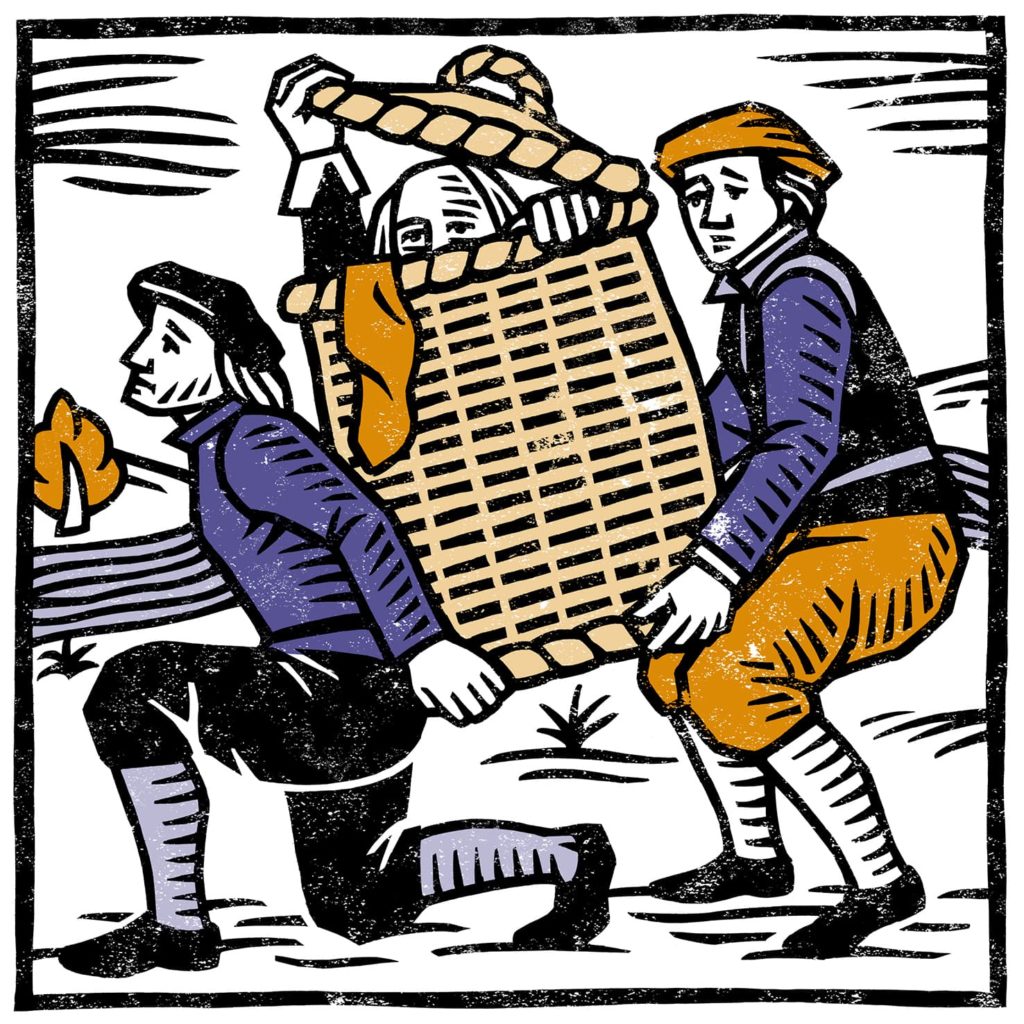It was written in the late spring of 1597, when Shakespeare had to break off work on Henry IV Part 2 because of a personnel problem in the company.
The play was first printed as a quarto in 1602, perhaps based on an early stage version, and emphasising the role of John Falstaff on its title-page. A second quarto in 1619 was typeset from the first. The First Folio version is much longer than both quartos, and was probably typeset from a reliable manuscript, prepared by Ralph Crane (a professional scribe employed by the King’s Men), who copied it from Shakespeare’s manuscripts or an earlier copy.

‘I am half afraid he will have need
of washing; so throwing him into the water will do him a benefit.’
The Merry Wives of Windsor, III iii
Brief synopsis of the play
In the only comedy that Shakespeare bases in England, and in his own time, he transplants his popular, audacious rogue, Sir John Falstaff, to the domestic setting of Windsor. Falstaff attempts simultaneously to seduce both Alice Ford and her friend Margaret Page, as much for their husbands’ wealth as their own charms. The wives see through his tricks and conspire to humiliate him, notably using a smelly laundry basket to dampen his ardour.



